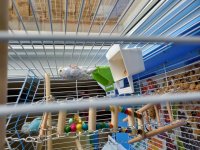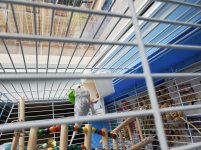Hello,
I bought this budgie more then 3 weeks ago and since then i have noticed her looking messy. Her feather are unorganized. She eats and drinks regularly. Plays all the time but feather doesn't look like the other budgie. Any idea why and i need to do anything?
Thanks in advance!!
I bought this budgie more then 3 weeks ago and since then i have noticed her looking messy. Her feather are unorganized. She eats and drinks regularly. Plays all the time but feather doesn't look like the other budgie. Any idea why and i need to do anything?
Thanks in advance!!
Attachments
Last edited:

